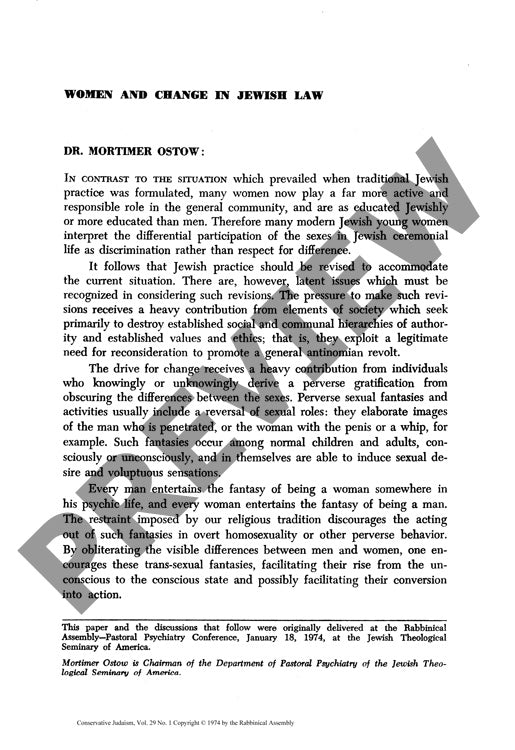Women and Change in Jewish Law
Couldn't load pickup availability
Deeply rooted psychological factors - from unconscious fears of female divinity to anxieties about masculinity and religious authenticity - significantly shape resistance to women's expanded participation in Jewish religious services. Through psychoanalytic frameworks and clinical psychiatric insights, this analysis reveals how traditional synagogues function as sanctuaries from secular gender competition, while menstrual purity laws (nidah) continue to influence congregational attitudes toward women's ritual roles. The methodology combines psychiatric perspectives with Jewish legal (halakhic) principles to evaluate potential consequences of ritual modifications. Opposition to women's increased ceremonial participation emerges from multiple psychological sources, including associations between female presence and sensual indulgence, concerns about sexual arousal during worship, and fears of undermining traditional authority structures. While legitimate aspirations for women's greater religious involvement warrant serious consideration, successful integration requires gradual implementation with extensive congregational preparation. Rather than simply replicating male roles or blurring gender distinctions, the research recommends reimagining service formats to create novel participatory opportunities that accommodate women while preserving the psychological and spiritual integrity of Jewish worship. These findings illuminate the complex intersection of psychology, gender, and religious practice in contemporary Jewish communities.

More Information
-
Physical Description
-
Publication Information
Published 1974
ISBN
-
Publication Credits

